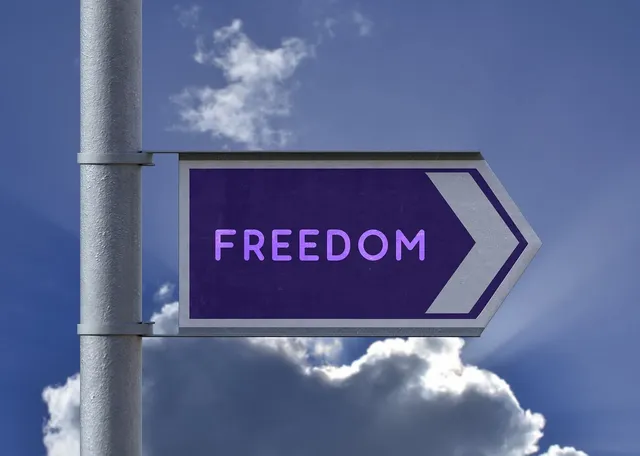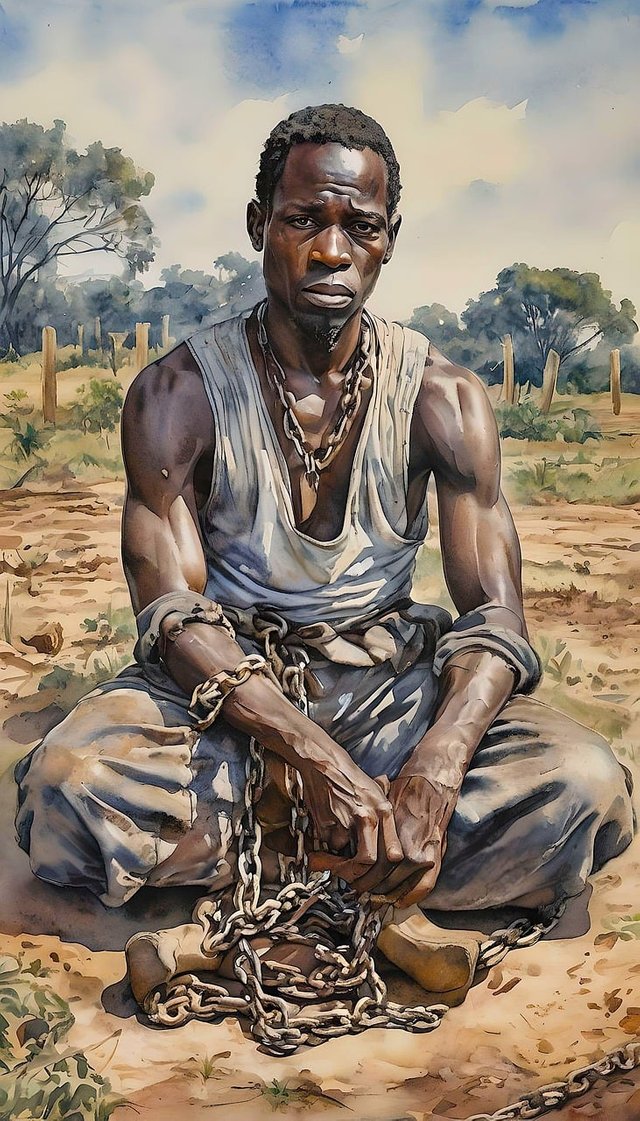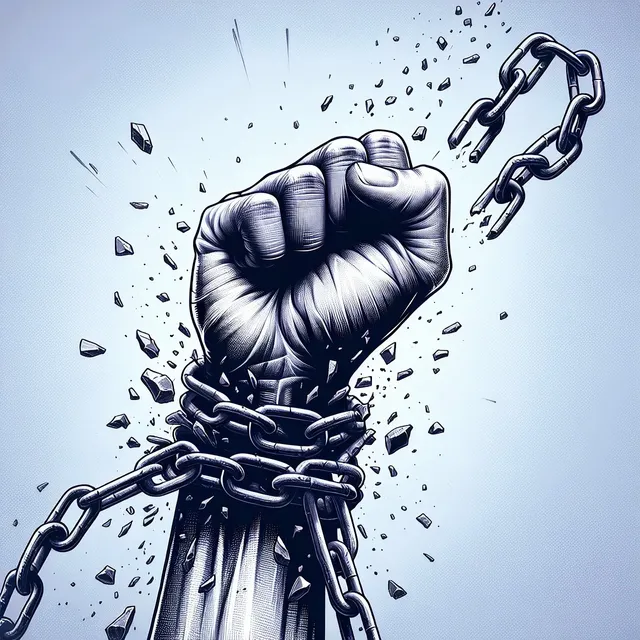INTRODUCTION
Hi steamians,
I want to say a very big thank you to
@patjewel for this contest, its always interesting and educating, and for this week contest, I will write on the topic FREEDOM
Freedom: A Journey Through the Lens of Nigeria’s Struggle Against Slavery
Freedom is a powerful concept that has shaped the course of history, defining civilizations and dictating the fate of millions. It is an inherent human right, yet, for centuries, countless people have been denied this most basic of liberties.
NIGERIA
Nigeria, one of Africa's most populous and diverse nations, has a history deeply intertwined with the fight for freedom, particularly from slavery. The struggle of Nigeria against the chains of slavery and oppression serves as an emblem of the universal quest for autonomy, dignity, and self-determination.
The Legacy of Slavery in Nigeria The transatlantic slave trade, which began in the 15th century, played a devastating role in Nigeria’s history. Millions of men, women, and children were captured from regions that now form modern-day Nigeria, particularly from the Yoruba, Igbo, and Hausa ethnic groups.
They were sold into bondage, shipped to faraway lands, and forced to work in brutal conditions, stripped of their identities, languages, and cultures. The Bight of Benin and the Bight of Biafra, coastal regions of Nigeria, became infamous centers for the slave trade. European colonizers and traders, in collaboration with some local leaders, fueled this human trafficking system that tore apart families and communities.
The loss of able-bodied individuals left deep social and economic scars that Nigeria would struggle with for centuries. Yet, even in the face of this dehumanizing trade, the spirit of resistance remained strong.
Many enslaved people fought back, revolted, or fled, refusing to let their captors dictate their lives. This defiance was an early manifestation of the Nigerian spirit of resistance against subjugation, a precursor to the broader struggles for freedom that would follow.
The Fight for Freedom: From Colonial Rule to Independence The abolition of the transatlantic slave trade in the 19th century was a critical turning point, but freedom from slavery did not immediately translate into independence or self-determination for Nigeria.
European colonial powers, particularly Britain, established control over the territory, turning Nigeria into a colony in 1914. While slavery as a formal institution had been abolished, colonial rule introduced a different kind of bondage—political and economic subjugation.
Colonialism imposed artificial boundaries, merging diverse ethnic groups and kingdoms into one entity under British control. The Nigerian people, though no longer enslaved in the traditional sense, were now under foreign rule, deprived of the ability to govern themselves and their resources.
However, just as they resisted slavery, Nigerians began to organize against colonialism, inspired by global movements for freedom and self-determination. The early 20th century saw the rise of nationalist movements across Nigeria. Leaders like Nnamdi Azikiwe, Obafemi Awolowo, and Ahmadu Bello played critical roles in advocating for self-rule.
They challenged the British Empire's grip on Nigeria and rallied for the right to determine their own future. This period of activism and political consciousness mirrored the global tide of decolonization after World War II.
Nigeria's Independence: A New Chapter of Freedom On October 1, 1960, Nigeria gained its independence from British colonial rule, a monumental achievement and a triumph of the long-standing struggle for freedom.
The moment represented the culmination of centuries of resistance—from the fight against slavery to the battle against colonial exploitation. Independence symbolized the Nigerian people reclaiming their dignity, land, and right to self-governance. However, independence did not immediately solve the many challenges that Nigeria faced.
The scars of colonialism and slavery ran deep, contributing to ethnic tensions, economic inequality, and political instability. The new nation grappled with internal divisions, most notably leading to the Nigerian Civil War (1967-1970).
Yet, despite these challenges, the essence of freedom—self-determination and autonomy—remained central to Nigeria's national identity. ### The Enduring Legacy of Freedom Today, Nigeria stands as a testament to the resilience of a people who have fought tirelessly for their freedom.
The country’s journey from the dark days of slavery and colonialism to its modern-day status as an independent nation is a powerful reminder of the indomitable human spirit.
Though Nigeria continues to face political, social, and economic challenges, its people draw strength from the memory of their ancestors who endured and overcame bondage. Nigeria’s struggle against slavery and colonialism reflects the broader African and global fight for freedom. It is a reminder that freedom is not just the absence of chains but the presence of dignity, equality, and justice.
The Nigerian experience teaches us that freedom is a continuous journey, one that must be nurtured and protected across generations.
Conclusion:
Freedom is a fundamental human right, a principle that has driven the course of Nigeria's history. The fight against slavery, colonialism, and oppression is embedded in the nation’s collective memory and continues to inspire future generations. Nigeria’s journey is a vivid illustration of the universal desire for freedom and the power of a people united in their quest for self-determination. As Nigeria looks to the future, its history serves as a powerful reminder that true freedom is not just about breaking the physical chains of oppression but about building a society that values justice, equity, and the rights of all its citizens..



.jpg)
Saludos gracias por compartir tu participación con nosotros en este concurso. Yo puedo decir que la libertad no tiene precio y que bueno es vivir en libertad. Exitos.
Downvoting a post can decrease pending rewards and make it less visible. Common reasons:
Submit
Thank you so much ma
Downvoting a post can decrease pending rewards and make it less visible. Common reasons:
Submit
Omohh babe you dey write oh sha
Downvoting a post can decrease pending rewards and make it less visible. Common reasons:
Submit
Eweehhh😆😆😁🤣😂
Downvoting a post can decrease pending rewards and make it less visible. Common reasons:
Submit
Thank you for participating in this week's contest.
Unfortunately, I have picked up a high percentage of AI usage by using two different tools.
It is always good to check your post before you post it with a tool like https://www.zerogpt.com/
Also, when you mention facts, it is best to always mention your source. Just like we used to do with school projects.
Best wishes!
Downvoting a post can decrease pending rewards and make it less visible. Common reasons:
Submit
Ohh am sorry ma,thank you for the link ma,i will on my next post.
Downvoting a post can decrease pending rewards and make it less visible. Common reasons:
Submit
Pleasure!
You have great potential when it comes to writing. Make the most of your posts at all times.
You can do it!
Downvoting a post can decrease pending rewards and make it less visible. Common reasons:
Submit
Thanks Ma,i wont take this for granted
Downvoting a post can decrease pending rewards and make it less visible. Common reasons:
Submit
Pleasure! 🎕
Downvoting a post can decrease pending rewards and make it less visible. Common reasons:
Submit